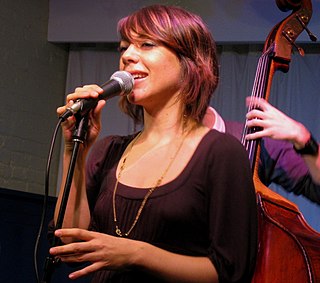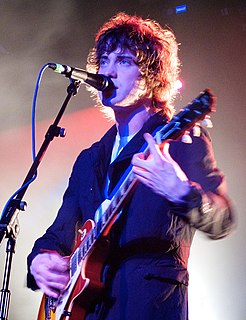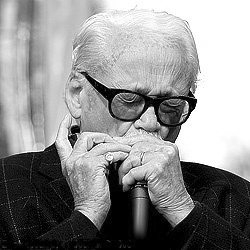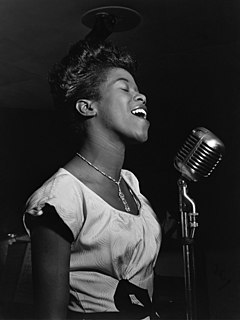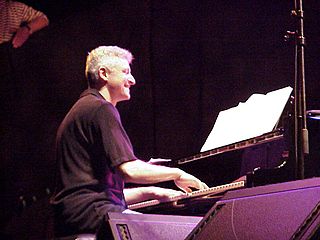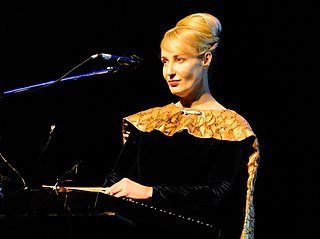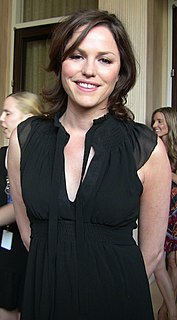A Quote by Gretchen Parlato
Ultimately, I think there's this umbrella term of jazz, and what's cool about not just what's happening with my music but this general sense of what's happening with this generation of musicians, is it's a very broad term, and we can incorporate all types of music, and we can be influenced and inspired by all kinds of sounds.
Related Quotes
The most important thing that a company can do in the midst of this economic turmoil is to not lose sight of the long-term perspective. Don't confuse the short-term crises with the long-term trends. Amidst all of these short-term change are some fundamental structural transformations happening in the economy, and the best way to stay in business is to not allow the short-term distractions to cause you to ignore what is happening in the long term.
For me, let's keep jazz as folk music. Let's not make jazz classical music. Let's keep it as street music, as people's everyday-life music. Let's see jazz musicians continue to use the materials, the tools, the spirit of the actual time that they're living in, as what they build their lives as musicians around.
That's what it is-it's jazz. It's just jazz. That's what the whole thing is about to me. It's about what's happening right now in this context. This conversation is jazz to a certain extent. It's improvisation. What appeals to me about music is the improvization. That's what I don't like about the media-they're not living it.
In general, the musicians we met that made the most sense just said to do what feels right and try not worry about what other people think. I know that sounds stupid and simple. I feel like Neil Young has done that and he's still making albums. He's one of the people I really look up to as someone who has kind of stuck to their guns their whole career. Just making music for music.
I'd rather call it "instrumental creative music," especially the music that I've been doing. If a person would hear that music, they would undoubtedly call it "jazz." There is this whole generation of musicians that are playing and thinking critically for themselves and making music that's relevant to today. I hope that's the objective of a lot of musicians.
Jazz is an endless source of ideas, because you can use anything. You can play operatic arias. You can incorporate them into jazz. You can play gypsy music and incorporate it into jazz. You can European classical and you can incorporate it into jazz. You can use anything and jazz it up, as they used to say.
This is a tradition of resistance to the term that's as old as the term itself, especially because that term has been used to commodify and reduce black creativity, and also to appropriate and sell it. That's what John Coltrane said in an interview with a Japanese journalist: "Jazz is a word they use to sell our music, but to me that word does not exist." And he's treated as one of the central figures in the history of jazz. So if he rejected it, then why is it weird when I do it? I'm in the tradition!
I don't know why people call me a jazz singer, though I guess people associate me with jazz because I was raised in it, from way back. I'm not putting jazz down, but I'm not a jazz singer...I've recorded all kinds of music, but (to them) I'm either a jazz singer or a blues singer. I can't sing a blues – just a right-out blues – but I can put the blues in whatever I sing. I might sing 'Send In the Clowns' and I might stick a little bluesy part in it, or any song. What I want to do, music-wise, is all kinds of music that I like, and I like all kinds of music.
The hardest thing about being a young musician on the jazz scene is that there are so many styles of music, jazz and otherwise, that you're exposed to. The challenge is to use all that in your own way, to personalize all that has come before you and all that is happening around you. To get the music the way you want it, there's a lot of work involved.
We always have a basic structure for a piece of music, but we encourage the musicians to elaborate on whatever they feel at that particular moment. There's a definite conversation happening on stage. I think it is very important for us as creative musicians, to instantaneously describe any energy that is visible at that time.
